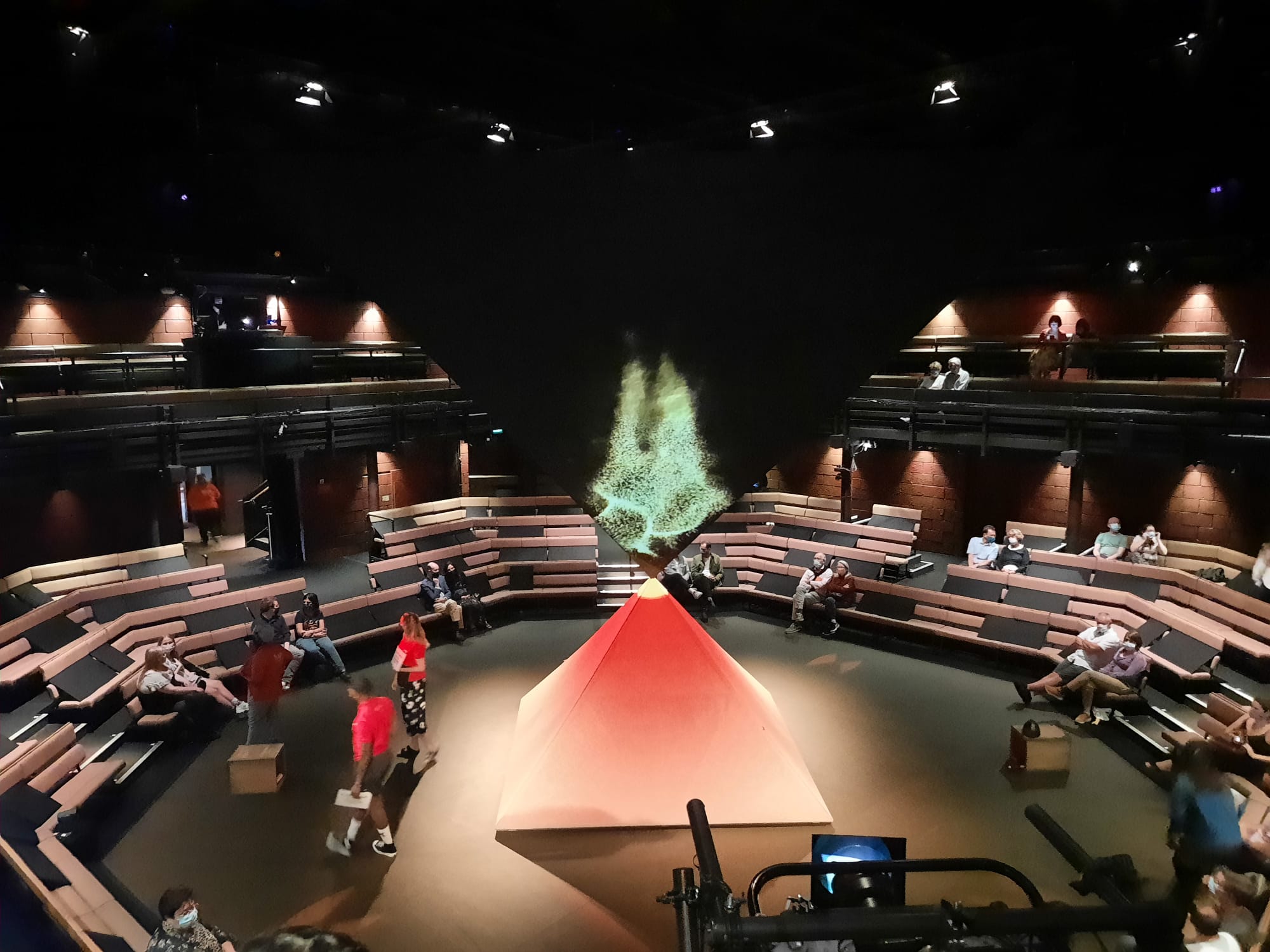The Covid Diaries 84 – The Young Vic, Changing Destiny
A bold way for the Young Vic to reopen post-lockdown, Changing Destiny is a foray into storytelling, speaking to us across 4,000 years of history.
The Story of Sinuhe
Many of us have probably not heard of Sinuhe. He is a character from a story thousands of years old, from Egypt’s prosperous Middle Kingdom. The story of Sinuhe was immensely popular at the time, as evidenced by many surviving fragments of text. Its themes have a universal quality which still speak to us. In it, scholars have seen the groundwork for The Odyssey, or even Hamlet. Sinuhe is a royal guard, who overhears a conversation about the death of the Pharaoh, and flees in terror. He spends long years in a self-imposed exile from his homeland; despite ending up in a powerful position in the kingdom of Retenu, he longs for the part of his soul he left behind in Egypt. Thanks to the mercy of the new Pharaoh, he is able to fulfil his wish to return before he dies.
That is really a very brief synopsis, but you can already see the universal themes coming through. There is loss, guilt, questions of what home is, and what makes us human. A chance conversation led writer Ben Okri and Young Vic Artistic Director Kwame Kwei-Armah to identify a shared interest in the story of Sinuhe. A project to adapt it for the stage, which began pre-pandemic, became the play which reopened the Young Vic post-lockdown. The simplicity of its approach to storytelling make it a bold choice which seems to have divided critics. And a rejection of the tendency to pull Egypt into the realm of ‘Mediterranean cultures’ by centring the story as African is an important declaration.
Storytelling: Part Of What Makes Us Human
The core of this production is so simple that it’s almost not theatre at all. There are two actors, Joan Iyiola and Ashley Zhangazha, who alternate roles each night depending on the outcome of a game. One plays the body of Senuhe, and one plays his spirit and a host of other roles. As the audience, we are exhorted to close our eyes and imagine ourselves around a campfire, a long time ago. An effective way to connect us to the storytelling instinct that we share across eons and across cultures.
And storytelling it most definitely is. There are a selection of props to help the actors embody the different characters, but this is pure narrative storytelling (basically the opposite of the meta-theatre of something like The Two Character Play). The story packs in a lot of detail so you really need to keep up with who is who and what is going on – at one stage I found myself wondering “What in the gay wedding…?” but it turns out I was just a bit lost. For Changing Destiny to work, you need to give yourself over to the story the actors are weaving, let it sweep you along. It is oddly satisfying.
The main departure from an evening of storytelling is the set design by Sir David Adjaye (brother of Peter Adjaye whose soundscapes we have encountered previously). Two pyramids, one inverted, sit point to point. This very simple design represents the whole universe – ground, buildings, heavens, deepest inner thoughts… A simple device which elevates the production and engages the audience.
Like many things here on the blog, Changing Destiny is not everyone’s cup of tea, but I liked it. And with some performances still socially distanced, its a good chance for a night at the theatre for even the most Covid-cautious.
On its own merits: 3/5
Implementing Covid measures: 4.5/5
Changing Destiny on until 21 August 2021
If you see this after your page is loaded completely, leafletJS files are missing.


One thought on “The Covid Diaries 84 – The Young Vic, Changing Destiny”